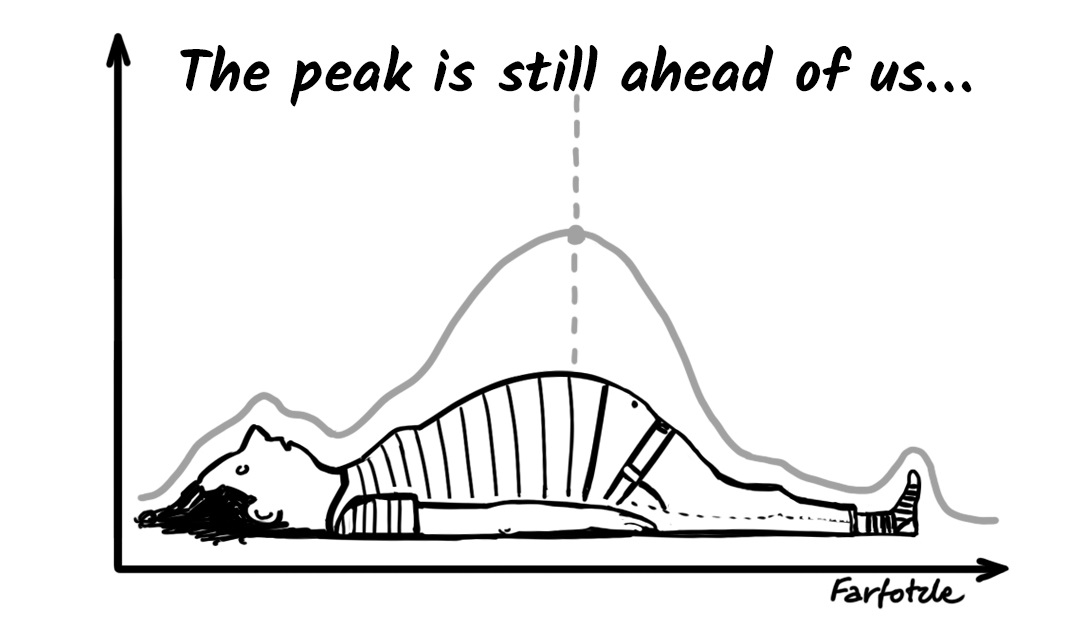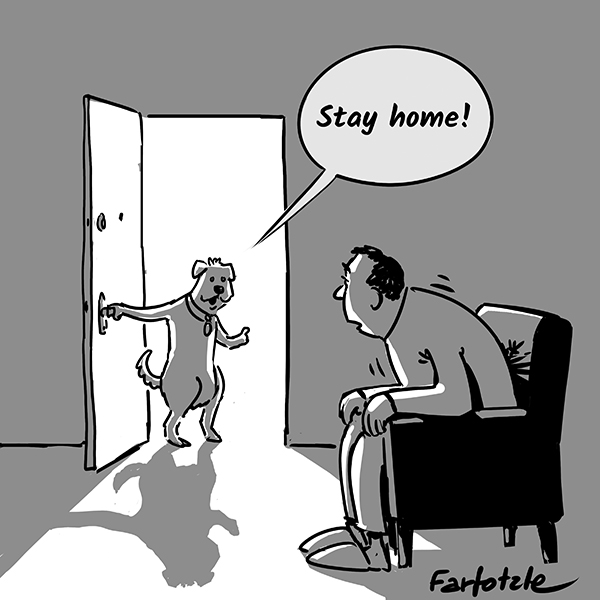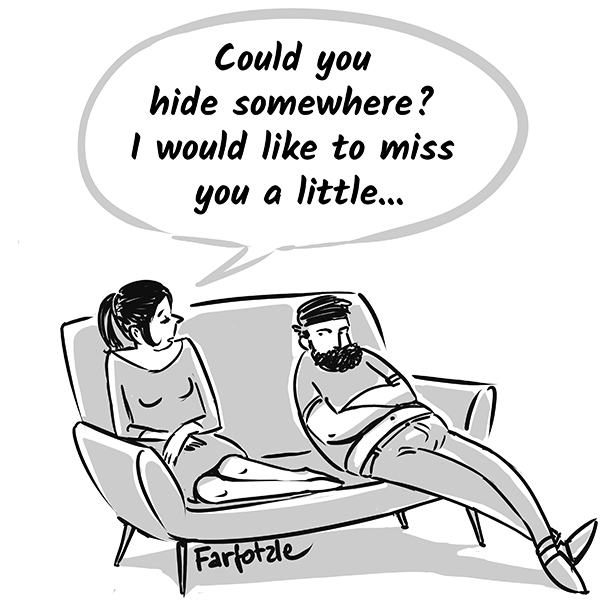
In the past, we would talk about confusing, deluding, brainwashing, or messing with someone’s mind. Polish speakers would talk about making water out of someone’s brain. Today, the word for the same is “gaslighting.” In his essay: Prepare for the Ultimate Gaslighting*, Julio Vincent Gambuto warns us that it is coming. He believes that before the COVID-19 pandemic, we were gaslighted by “the multibillion-dollar advertising business,” which kept us under the delusion that whatever problem we might have, it could be resolved by buying whatever they offer.
Now, during the shutdown, when all nonessential businesses are closed, Mr. Gambuto realized that there is more in life than buying. As we all look forward to returning to normal, he warns us that “Billions of dollars will be spent on advertising, messaging, and television and media content to make you feel comfortable again.” He tells us that, longing for a return to normalcy, “we are, as a society, now vulnerable in a whole new way” to becoming victims of mindless consumerism.
Why the message of Mr. Gambuto is important even though he is wrong
When I looked the first time at the essay by Mr. Gambuto, I dismissed it as a meaningless sniveling by a person spoiled by the benefits of our advanced civilization. Then, Siobhan O’Connor, the leading editor at Medium, wrote in her newsletter that a few days after reading Mr. Gambuto’s article, she still could not quite shake it off. She added that this article has “been read by many millions of people, I think because it speaks to a thought many of us are having that we had yet to name.” According to Mr. Gambuto’s website, his “latest piece (…) went viral, with 19 million views around the world.” I checked on Medium again. Two weeks after the publication, with 164,000 claps and 870 comments, it is among the most popular articles on Medium ever. I read about 200 comments. The prevailing majority of them are enthusiastically supportive.
Mr. Gambuto put into words the thoughts that many of his readers had. The bewilderment I see in his manifesto represents the views of a meaningful part of our society. Mr. Gambuto had the talent and courage to write it down. Hence, it is not only about the confusion of Mr. Gambuto. It is about why so many among us are disoriented.

What normalcy is
Mr. Gambuto describes it as: “When the problem is practical and tactical, the solution is ‘as seen on TV’ and available at Home Depot.” In that vision of normalcy, Coca-Cola makes us happy, a Mercedes makes us successful, a Royal Caribbean cruise makes us special, and so on. According to Mr. Gambuto, we have been gaslighted this way for the last hundred years. Mr. Gambuto does not specify who was gaslighted, and he is wrong on the years as well.
I can agree that consumerism, as we know it now, gained momentum about one hundred years ago, but the Great Depression cut it down. During the long years of painful recovery, followed by the lean years of World War II, people had no money. Even if someone tried, there were very few vulnerable to gaslighting. Hence, the situation, as Mr. Gambuto sees it, has existed for no more than 70 years. And only for the affluent ones.
Almost all of us can afford Coca-Cola, so Mr. Gambuto can say that we drink it because advertisers have convinced us that it makes us happy. But regardless of how much sugar is in Coke, it leaves a bitter taste for people who sip it when looking over the pile of past-due bills, deliberating as to which one to postpone so they can buy in Home Depot batteries for the smoke detectors. For many, necessities such as those batteries might be the only reason that they are “gaslighted” to visit stores like Home Depot. For too many, this is normalcy in America.
Hence, I have no compassion for those buying Mercedes to feel successful, or taking Royal Caribbean cruises to feel special. I can only congratulate the advertisers who spotted the losers who needed to spend money to support their egos.
Normalcy in New York is different than it is in most places around the world. Up to the late 1970s, starvation was the state of normalcy for about one-third of the population in China. Even today, most people around the world are naturally immune to gaslighting because they have no discretionary income. People in countries such as North Korea or Venezuela probably would gladly exchange their “paradise” for a little bit of the decadent capitalism so well denounced by Mr. Gambuto.
What represents licentious normalcy for Mr. Gambuto is a blessing for people like me. I was not much younger than Mr. Gambuto is now (I guess), when I left my native Poland. We had socialism in Poland then. To buy bread, I needed to get to the bakery around 2 a.m. when they were pulling bread out of the oven because an hour later, all of it had been sold. I kept in the drawer a collection of old screws and nails, solicitously straightened, because if I needed one, there were no stores so well-equipped as Home Depot. Buying almost anything was a struggle. But I was free from the brazen gaslighting by advertisers that, according to Mr. Gambuto, is the greatest danger for Americans. The only gaslighting came from the official propaganda that was shoveling at me those same arguments about the evils of consumerism that Mr. Gambuto is serving me now.
When in America, I am as annoyed as everybody else by the intrusive and omnipresent marketing. It takes a lot of time and effort to sort it out. But aware of my life objectives, knowing what I need and what I can afford, I manage it. At least, in a heartbeat, I prefer it to the alternative, which I experienced before.

The crisis has always been normal
For the past few decades, we have been blessed with relatively peaceful economic growth. Behind the logic of Mr. Gambuto’s reasoning, there is an assumption that this is normal. He is wrong. Comparing the Spanish Flu of 1918 to COVID-19, commentators noted the government at that time did almost nothing to help Americans in weathering the crisis. About a century ago, people saw their lives as strings of suffering and simply did not expect any help. This was normal.
Up to recently, plagues such as the black death, cholera, or malaria decimated populations. There was no protection from flooding; there was no early warning of hurricanes. Fires, as in Chicago in 1871, were much more damaging than now. Earthquakes caused more harm than they do now. And if that was not enough, devastating wars were happening more often than now. There is a biblical story about seven ugly and gaunt cows that ate up the seven sleek and fat cows. Guided by the sagacity of this message, one knew if there was a period of peace and prosperity, it was time to get prepared for the next calamity.
Tremendous progress in medicine protects us from plagues, so frequent in the past. We are better prepared against floods, fires, earthquakes, and hurricanes. As a result, the illusion of the new normal has emerged that we are in full control. COVID-19 reminds us that we will never fully control our environment. Mr. Gambuto is right that as soon as the worst of COVID-19 is behind us, advertisers will lure us into buying like there is no tomorrow. It is their job to do that. My worry is whether we will have enough wisdom to prepare for future disasters.
They will come. Some are obvious. Science tells us that the next big earthquake in California is just about due. Also, as a society, we are now better protected against hurricanes, floods, and fires; hence, for many of us, the most devastating disasters are on a personal level. With advanced medicine, we can survive once deadly illnesses. We may stay alive but financially ruined by the cost of medical care. We may survive but handicapped, which might require extra mental strength and, more often than not, money. The swirls of technological progress can bring us a big win today and an even larger loss tomorrow. Lastly, the systemic dysfunctionality of our political system can explode into an economic crisis much more harmful than COVID-19.
In Mr. Gambuto’s essay, although not explicitly expressed, there is an assumption that we, as a society, should protect most of us from the misadventures we encounter. I have bad news for Mr. Gambuto: It is not sustainable. The prosperity of our society requires that the prevailing majority of us each can resolve our problems within our means. I can understand that marketers do not tell us this sobering truth; they want our money. Warning us against “business and government” banding “together to knock us unconscious again,” Mr. Gambuto gaslights us into the illusion that “if we just want to live a simpler life, we can make that happen.”

Life is tough
Only the most affluent can enjoy the unbridled consumption that Mr. Gambuto criticizes so much. I doubt that those who bought a Mercedes to feel important had a revelation after reading Mr. Gambuto’s essay; they do not read Medium. His message resonated among those who, if they are lucky, get into Mercedes on an Uber ride. They supported the message from Mr. Gambuto not because it gave them a moral awakening. They endorsed it because it gave them consolation. It made them feel superior because they do not consume extensively. Simply, they cannot afford it.
By mentioning skies free from industrial pollution during a shutdown, Mr. Gambuto flattered numerous climate change advocates on Medium. He has no mercy in criticizing the American political reality, which is a trendy mantra on Medium as well. Then, in the same breath, with the zeal of the people’s tribune, he writes: “If we want our neighbors and friends to earn a dignified income, we can make that happen.” It did not occur to him that for anyone to have any income, we need to reopen all the polluting businesses and put back on the streets the smoking cars. Even if we want to have our air cleaner, to achieve it, for the time being, we need to deploy our fossil-fuel-powered economy to produce whatever is necessary to have an industry with less pollution. Mr. Gambuto is greedier than those who want to have their cake and eat it too. He wants to eat a cake before it is baked. Exploring the anti-business and anti-government sentiments of his audience, Mr. Gambuto gaslights big time.
We need a serious conversation
Deborah Hayden posted the best comment. She is concerned that trillions of dollars being spent on relief programs add to our already excessive national debt of $23 trillion. The ballast of this debt “will cause a depression unlike anything this country, and the world has ever experienced. All those marketing attempts at gaslighting us into buying like crazy again will be useless. People will not have money.”
Regardless of how much gaslighting comes from Mr. Gambuto or from the people he accuses of gaslighting us, there is no way of avoiding this reality. Paraphrasing the title of Mr. Gambuto’s essay, we should prepare for the “ultimate fall” of our economy, as Ms. Hayden warns us.
We need a serious conversation about the challenges we face as a nation and as humanity in general. Mr. Gambuto pointedly notes that our leaders are not up to the task. Sadly, his message mirrors intellectually what those leaders offer, only with a different ideological twist.

 Many tell us what to think. I ask my readers to be skeptical. Question me and others.
Many tell us what to think. I ask my readers to be skeptical. Question me and others. 